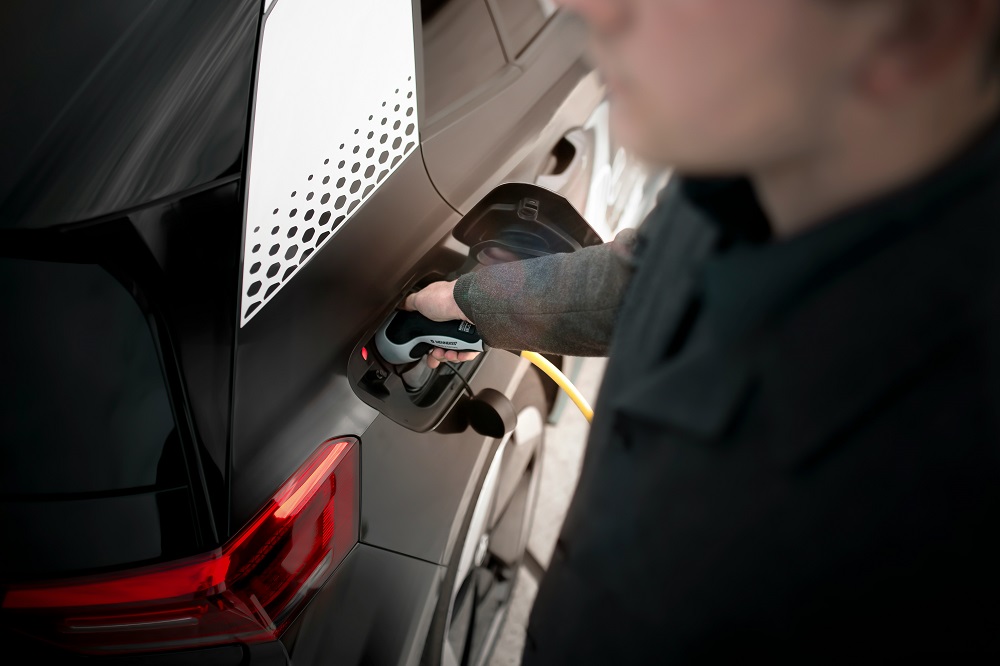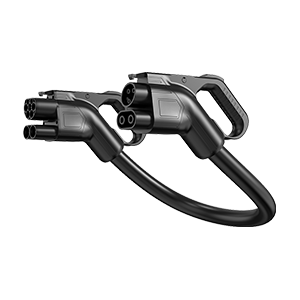
Electric vehicles (EVs) have revolutionized the automotive industry, offering a sustainable and eco-friendly alternative to traditional cars. As the adoption of EVs continues to grow, understanding the nuances of their charging infrastructure becomes crucial. One pivotal aspect that significantly influences the charging speed of EVs is the type of charging connector used.
This comprehensive blog post delves into the intricate world of EV charging connectors, exploring their impact on charging speed and the overall user experience. From the importance of these connectors in the EV charging landscape to the compatibility between different EVs and connector types, we will navigate through the key considerations that every EV owner should know. Additionally, we'll address the factors that influence the choice of an EV charging connector and guide you in making an informed decision when selecting the correct connector for your electric vehicle.
Understanding the Importance of EV Charging Connectors
EVs have emerged as a sustainable and eco-friendly mode of transportation, contributing to global efforts to reduce carbon emissions. The charging connectors are central to the functionality of EVs and play a pivotal role in determining the charging speed. The evolution of EV charging technology has led to various connector types, including those utilized in EV charging stations and destination chargers.
EV charging stations have become ubiquitous in urban landscapes, catering to the growing demand for efficient charging solutions. Understanding the diverse EV charging connector types available is the key to maximizing charging speed. These connectors act as the bridge between the power source and the electric vehicle, facilitating energy transfer to replenish the battery.
Does EV charging connector type affect EV charging speed?
The charging speed of EVs is influenced by the charging connector types and the corresponding charging standards. Each connector used for electric vehicle charging has its own specifications that determine the maximum charging power and speed. Here are the common connector types and how they affect charging speed:
Types of EV charging connectors:
Type 1 (SAE J1772): Originally popularized in North America and Japan, Type 1 connectors are known for their single-phase charging capabilities. These connectors are generally found in Level 1 and Level 2 charging stations.
Type 2 (IEC 62196 or Mennekes): Widely used in Europe and gaining global prominence, Type 2 connectors support single-phase and three-phase charging. They are commonly found in Level 2 and Level 3 charging stations.
CHAdeMO: Developed in Japan, CHAdeMO is a fast-charging connector primarily used by Asian automakers. It supports DC fast charging and is often found in Level 3 charging stations.
CCS (Combined Charging System): Embraced by North American and European automakers, CCS connectors combine two additional DC pins with the standard Type 2 connector. This allows DC fast charging and is becoming a global standard for Level 3 charging.
Charging Speed and Connector Power:
Level 1 (120V AC): Type 1 connectors are commonly used for Level 1 charging, delivering a relatively slow charging speed suitable for overnight charging at home. The standard household voltage limits the power output.
Level 2 (240V AC): Type 1 and Type 2 connectors are utilized for Level 2 charging, offering faster charging speeds than Level 1. The charging power is significantly increased due to the higher voltage.
DC Fast Charging (400V DC and above): CHAdeMO and CCS connectors are prevalent in Level 3 DC fast charging stations, providing rapid charging capabilities. The charging speed is considerably faster, as these connectors deliver high-voltage DC power directly to the vehicle's battery.
| Connector Type | Standard | Geography | Voltage | Power (kW) | Charging Speed | Common Applications |
| Type 1 (SAE J1772) | North America, Japan | Single-Phase AC | 120V-240V | Up to 19.2 | Level 1 and Level 2 | Residential, Public Charging |
| Type 2 (IEC 62196) | Europe, Global | Single/Three-Phase AC | 240V | Up to 43.5 | Level 2 and Level 3 | Public Charging, Some Residential |
| CHAdeMO | Japan, Asia | DC Fast Charging | 400V | Up to 100 | Level 3 (Fast Charging) | Fast Charging Stations |
| CCS (Combo 1 & 2) | North America, Europe, Global | DC Fast Charging | 200V-920V | Up to 350 | Level 3 (Fast Charging) | Fast Charging Stations |
Are all EVs compatible with the same charging connectors?
The compatibility of EVs with charging connectors is a crucial consideration for EV owners. Not all EVs are equipped with the same charging port, leading to a need for standardized connectors. This diversity in connectors arises from varying technological specifications adopted by different manufacturers.
EV charging stations, ranging from public charging networks to private installations like Destination Chargers, may feature different connector types. Common connector standards include CCS (Combined Charging System), CHAdeMO, and Type 2. Each standard has its advantages, and the compatibility of an EV with a particular connector influences the charging speed.
When contemplating EV charging, it is essential to ensure that the chosen connector aligns with the charging port of the electric vehicle. Understanding the compatibility between EVs and charging connectors is pivotal to preventing inconvenience and optimizing the charging process.
What Factors Should I Consider When Choosing an EV Charging Connector?
Selecting the suitable EV charging connector involves considering several factors to ensure a seamless and rapid charging experience. One primary factor is the charging speed compatibility between the EV and the charging station. Different connectors support varying charging speeds, ranging from standard to fast charging.
EV owners should also take into account the infrastructure available in their vicinity. Public charging networks predominantly use CCS and CHAdeMO connectors, while private installations, such as Destination Chargers, may offer Type 2 connectors. Adapting to the prevalent infrastructure ensures EV owners can effortlessly access charging facilities.
The charging power of the connector is another critical consideration. Some connectors support higher power levels, enabling faster charging. Newer connectors with enhanced capabilities are introduced as technology advances, providing more efficient and quicker charging options.

CCS2 to CCS1 EV Adapter by Joint
How do you choose a suitable EV charging connector?
Choosing the right EV charging connector involves a step-by-step process to align the EV's specifications with the available charging infrastructure. Firstly, identify the charging port type of the electric vehicle. This information is typically available in the vehicle's manual or can be obtained from the manufacturer.
Next, research the prevalent charging infrastructure in your area. Public charging stations commonly feature CCS and CHAdeMO connectors, while private installations like homes and businesses may utilize Type 2 connectors. Matching the EV's port type with the prevalent infrastructure ensures a hassle-free charging experience.
Consider the charging speed required based on individual needs and usage patterns. Fast charging options are advantageous for those who rely on their EVs for daily commuting, while standard charging may suffice for sporadic usage. Additionally, staying informed about upcoming connector standards and technological advancements enables EV owners to future-proof their charging options.
Conclusion
The choice of EV charging connector significantly impacts the charging speed and overall charging experience. Understanding the compatibility between EVs and charging connectors is paramount to avoid inconvenience and optimize charging efficiency. As the EV landscape evolves, staying informed about connector types, infrastructure developments, and technological advancements ensures that EV owners can make well-informed decisions, contributing to the seamless integration of electric vehicles into our daily lives.
Post time: Feb-27-2024
